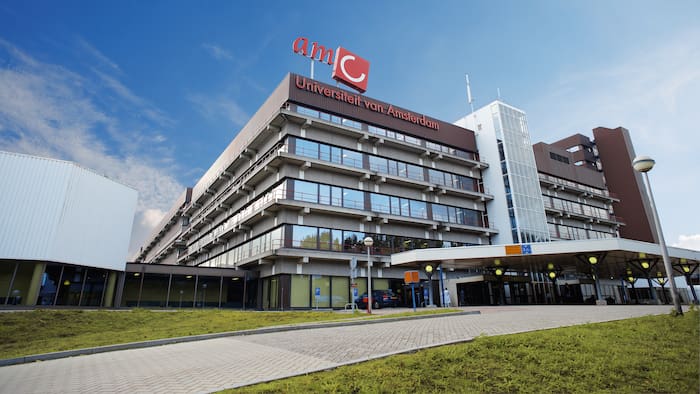
Preparing the healthcare industry of tomorrow
IoT applications

Deloitte’s Future of Health report predicts that digital transformation combined with innovation will result in radical changes in the healthcare industry, with greater focus being placed on data and technological platforms, wellbeing and care delivery, and care enablement. Even today, we are already seeing how healthcare is being reshaped by Artificial Intelligence, and robotics, genomics, and Internet of Things applications.
With recent advances in IoT (Internet of Things) applications, we are beginning to see the healthcare industry undergo a profound transformation. IoT refers to the network of physical devices, appliances, and other objects embedded with sensors, software, and network connectivity, enabling them to collect and exchange data over the internet. Think smart watches, augmented reality glasses, voice-controlled devices, health monitoring devices, ingestible sensors, glucose monitoring etc.
Currently, the world population grows by roughly 83 million people every year according to the United Nations. As a result, the healthcare industry must be able to accommodate a growing population and an increased number of patients. Thanks to IoT applications, digital healthcare will now allow patients to schedule their appointments online rather than calling the doctor’s office, reducing waiting times. Doctors and other members of staff can also access healthcare information easily through apps on their smartphones. Improving processes and efficiencies through IoT will be vital for upholding a good quality of care within the industry as populations continue to grow, as well as reducing staff labour and costs.
Cliniserve, a Munich-based startup which develops task and management systems, is already witnessing the benefits of such technology. Its software digitises and automates care processes within hospitals and other healthcare facilities, reducing staff’s workload and allowing them to take greater care of patients.
IoT processes can also support processes outside of medical centres too, relieving the burden on staff and healthcare centres. Devices, such as smartwatches and sensors monitor vital signs and other health parameters for those with chronic conditions. This information is then transmitted to healthcare providers, enabling them to intervene when needed, providing prompt care, and reducing the likelihood of re-admissions. These types of devices will provide more visibility for both the patient and doctor, enabling better patient out-care and prevention of illnesses.
Artificial Intelligence and Robots

Medical institutions including The National Library of Medicine (NLM) predict that AI (Artificial Intelligence) will revolutionise healthcare across all areas. From improved diagnostic accuracy and predictive analytics to drug development and continuous learning, our approach to healthcare could drastically change and improve sooner than we imagine. NLM also expect to see a partial use of AI in clinical practice within five years and more extensive use within ten. But it doesn’t stop there. Robots have also entered the medical field. In 2017, Xiaoyi, an AI-powered robot in China took the national medical licensing examination and passed, making it the first robot to have done so. Since then, development of robots in the medical field is on-going in efforts to improve quality of care and patient outcomes. For example, robots are being developed to be used in surgery, as they do not tire and can perform without the fear of their ‘hands’ starting to shake.
Genomics & Regenerative medicine
Chronic diseases are rapidly on the rise. NLM estimates that by 2050, the number of people aged 50 or over living with a chronic disease will double compared to figures recorded in 2020. Consequently, the need for personalised medicine is increasing in urgency and as a result, more investment is being put into the study of genomic medicine. Genomic medicine refers to a medical approach that utilises information from an individual's genome to guide medical decisions, diagnosis, and treatment. It involves analysing and interpreting an individual's genetic information to gain insights into their predisposition to certain diseases, potential response to treatments, and overall health risks.
Advancements in technologies continue to drive progress in the field of genomics. Next-Generation Sequencing (NGS) is a high-throughput technology that enables the rapid sequencing of large amounts of DNA. It has become a cornerstone in genomic testing, allowing for whole genome sequencing or targeted sequencing of specific genes.
In the future, doctors and other medical personnel will eventually possess an array of diverse treatments that can be tailored to an individual patient based on their unique genetic composition.
Other life-changing and revolutionary technologies are also being developed to support regenerative medicine. Globally, thousands of people are currently awaiting organ transplants, facing a critical hurdle as there is a scarcity of available donor organs. Thankfully, recent 3D bioprinting process could help to save lives by making the creation of tissue-compatible artificially engineered organs quicker and easier; alleviating the shortage by providing alternative options.
The future of healthcare

The future holds great promise, ushering in a new era of innovation and enhanced healthcare delivery. While technology will make countless advancements in the healthcare industry, certain aspects are crucial and will always remain a top priority, such as upholding excellent levels of hygiene and cleanliness.
Whilst there are many types of technology shaping the future of medical centres, we play our role by providing instrument reprocessing solutions that help medical professionals uphold stringent hygiene measures. At Miele Professional, we have been supporting doctor’s surgeries and clinics for the past six decades and continue to expand our influence within the industry today. From entering the medical technology market in 1961 with our special dishwashers for surgical instruments and laboratory glassware, to the introduction of our G 7717 washer-disinfector in 1979 which made it possible, for the first time, to separate the unclean and clean sides; our impact has been undeniable. We've been a system provider since 2010 and have continued to expand the system ever since: Today our 360PRO solutions for medical surgeries include high-performance machines, tailored process chemicals, modern software and service excellence to optimise the efficiency of medical practices. Always upholding our ethos of 'Immer Besser,' we are committed to advancing the field of medicine thanks to our many years of collaboration and expertise in the industry.
Learn more here.
Do you want to know more about Miele’s history? Or how we operate? Continue to read here:

We are your inspiring commercial solutions partner, providing a holistic and sustainable approach for your business, delivering outstanding results with top-class efficiency.
- 1.Insider Intelligence - https://www.insiderintelligence.com/insights/iot-healthcare/#:~:text=The%20IoT%20enables%20healthcare%20providers,sit%20down%20with%20a%20physician.
- 2.United Nations - https://www.un.org/en/desa/world-population-projected-reach-98-billion-2050-and-112-billion-2100#:~:text=With%20roughly%2083%20million%20people,levels%20will%20continue%20to%20decline.
- 3.Zudu - https://zudu.co.uk/blog/how-apps-are-revolutionising-the-healthcare-industry/
- 4.IoT business news - https://iotbusinessnews.com/2023/10/14/44345-revolutionizing-healthcare-the-internet-of-things-iot-in-healthcare/
- 5.https://www.miele.co.uk/p/cliniserve-aims-to-automate-care-processes-5906.htm
- 6.Futurism - https://futurism.com/first-time-robot-passed-medical-licensing-exam
- 7.https://www.statista.com/topics/2389/organ-donations-and-transplants/#topicOverview
- 8.https://www.ncbi.nlm.nih.gov/pmc/articles/PMC6616181/#:~:text=As%20a%20result%2C%20we%20expect,efforts%20to%20care%20for%20patients.
- 9.https://online-engineering.case.edu/blog/medical-robots-making-a-difference
- 10.https://www.birmingham.ac.uk/news/2023/3d-bioprinting-advances-could-speed-creation-of-new-organs
- 11.https://www.ncbi.nlm.nih.gov/pmc/articles/PMC9881650/#:~:text=Of%20the%20population%2050%20years,to%2014.968%20million%20in%202050.
- 12.https://www.bbc.com/future/article/20230602-are-we-entering-the-era-of-personalised-medicine
